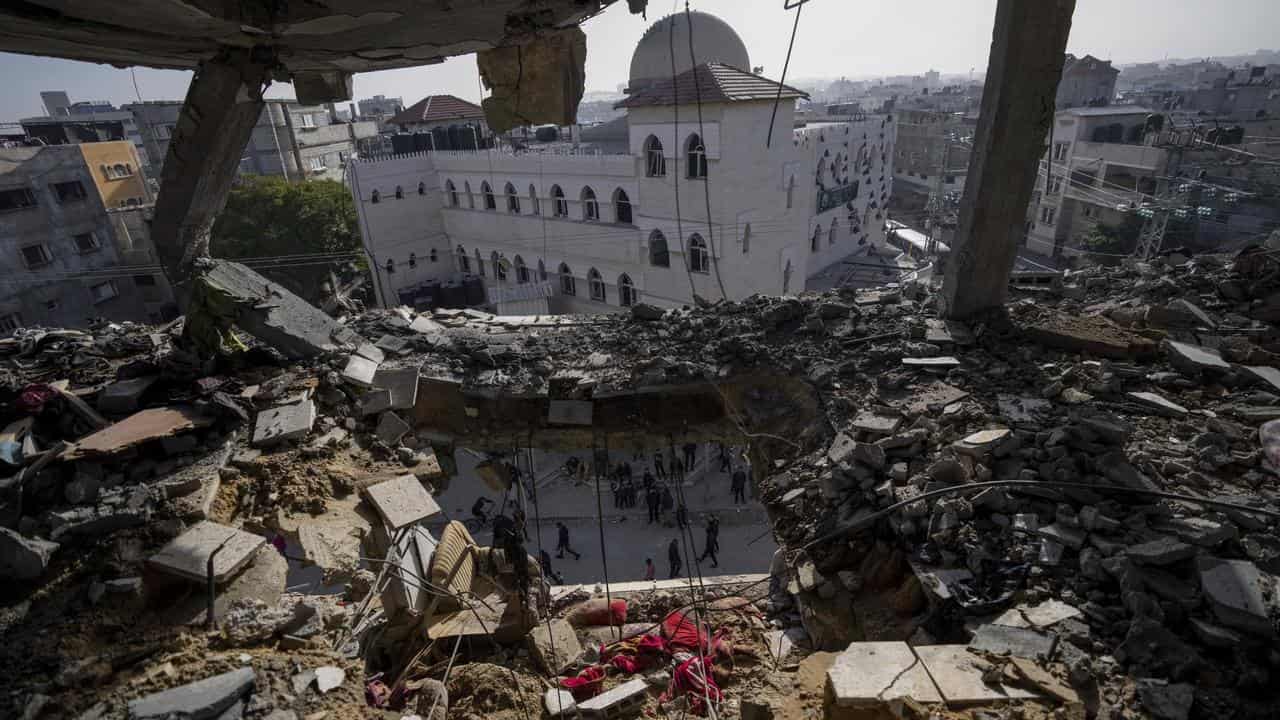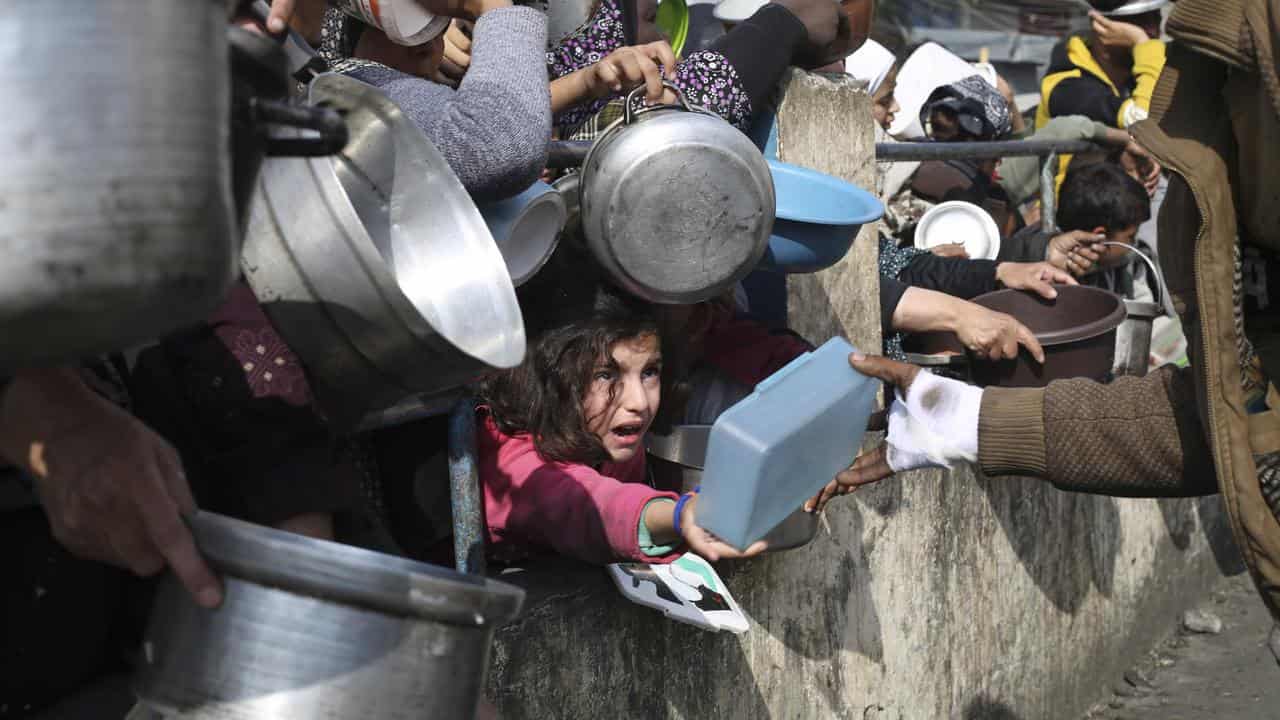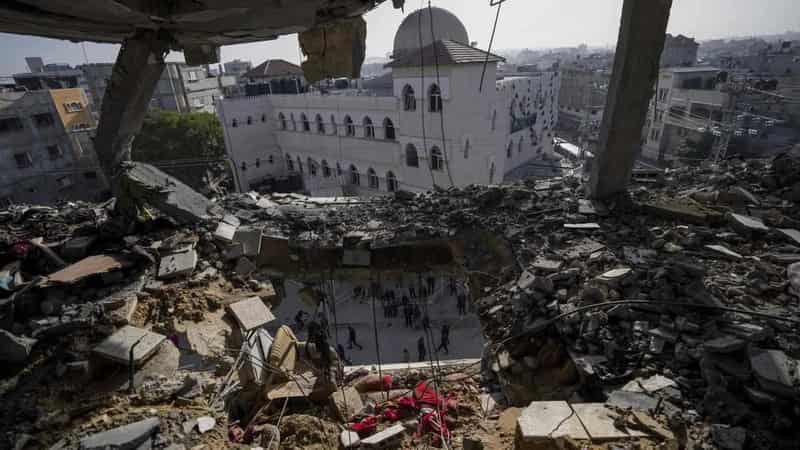
Israeli strikes in southern and central Gaza have intensified despite a pledge by Israel that it would pull out some troops and shift to a more targeted campaign, and pleading from its ally Washington to kill fewer civilians.
Israel has said this week it is planning to begin drawing down troops, at least from the northern part of Gaza, after weeks of United States pressure to scale down its operations and shift to what Washington says should be a more targeted campaign.
But the fighting appears to be as intense as ever, especially in the southern and central areas where Israeli forces launched ground advances last month.
In Rafah, on the southern edge of the enclave, relatives wept by the bodies of 15 members of the Nofal family laid out at a hospital morgue on Wednesday morning after their home was obliterated by an Israeli air strike overnight.
Most of the white shrouds were tiny, with children inside.
Israel has killed more than 23,000 Palestinians in Gaza since launching its campaign to eradicate the Hamas militant group that runs the enclave, after Hamas fighters killed 1200 Israelis and captured 240 hostages in a rampage on October 7.
US Secretary of State Antony Blinken, on his fourth trip to the region since the war began, went to Ramallah on Wednesday and met Palestinian leaders, including Palestinian Authority (PA) President Mahmoud Abbas, in the Israeli-occupied West Bank.
The PA, which exercises limited self-rule in the West Bank and accepts Israel's right to exist, lost control of Gaza in 2007 to Hamas, which is sworn to Israel's destruction.
Blinken has also met Israeli leaders and visited nearby Arab states, in search of a future settlement for the Gaza Strip, which has been laid to waste by Israeli bombardment creating a humanitarian crisis for its 2.3 million residents.
Washington wants Israel to give the Ramallah-based PA a future role in governing Gaza; Israel, which says it wants control of Gaza's security indefinitely, is reluctant.
Blinken said on Tuesday Israel had to make "hard choices" and must keep alive hopes of an independent Palestinian state if it wants to normalise relations with Arab neighbours.

"Israel must be a partner to Palestinian leaders who are willing to lead their people living side by side in peace with Israel and as neighbours," he said in Tel Aviv on Tuesday.
Despite a public assertion by Israel since the New Year that it is scaling back the war, Gaza residents say they have seen no let-up.
The northern half of the enclave is still off-limits, and the southern half has become a full-blown war zone in recent weeks.
Almost the entire population has been driven from their homes at least once, many displaced several times as Israeli forces advance.
Residents of Bureij, Nusseirat, and Maghazi in the central Gaza Strip reported intensive bombardment overnight, with Israeli tanks that launched an offensive there around Christmas pushing deeper into Bureij and Maghazi.
In Nusseirat, a new wave of displacement was under way, a day after Israel dropped new warning leaflets for residents of several districts to evacuate their homes and head west to Deir al-Balah.
Israeli bombing was also taking place there, with the Palestinian Red Crescent releasing video showing ambulances arriving at a hospital with the dead and wounded, including children.
In a sign of the intensity of the fighting, Israel reported nine of its soldiers killed in Gaza on Tuesday, one of the deadliest days for its troops of the war.
Israel, still deeply shaken by the Hamas October 7 killing spree, says it will not stop fighting until it has eradicated the Islamist group and recovered more than 100 hostages still held in Gaza.









